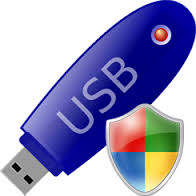
The teenager who allegedly “liked” a pro-Israel page on Facebook is traumatized both by the reaction of the police to investigate him for sedition and the condemnation of him by Internet users, said a source close to his family. Both the Form Five science student and his family are also baffled over the police decision to probe into him for sedition, as the 17-year-old did not “like” the “I Love Israel” page, nor did he make any remarks or postings that were seditious in nature, said the family friend.
The source, acting as spokesperson for the family, said the boy was too scared to go to school after learning of the vilification from several teachers and students from his school, with some even wanting to burn him for supporting Israel. “He never liked the page. He never shared it or posted anything about it. “He said his teacher had messaged him on Facebook to ask why he liked the page after she wrote about it on her Facebook”.
“He said he had also explained to her that he did not click ‘like’ on the page.”
He said the teen also repeated his account when he lodged a police report after receiving threats over the alleged Facebook page “like”. In the police report, the teen said he received a message from a classmate at 10pm on August 10 who told him that his Facebook page was showing that he had liked the “I Love Israel” page. He denied clicking “like” on the page and did not know how it happened.
He then discovered that a screenshot of his Facebook page showing the “like” had been posted on the Facebook page of one of his teachers with the comment “Anak muridku suka Israel? Buat malu cikgu saja” (My student likes Israel? What an embarrassment).
He read the angry comments posted by other people on his teacher’s Facebook page and learned that several teachers and students from his school had condemned him. The spokesperson said when the boy went back to school after a few days, he was initially shunned by some of his schoolmates and teachers.
“He was given the cold shoulder by his schoolmates… they didn’t want to talk to him. But he wasn’t bullied. “It is a little better now. Some of his Muslim schoolmates are talking to him again,” he said. The spokesperson also said the family were worried about the sedition probe. “This boy is one of the top students in school… a regular straight-A scorer. He is not the type who goes around looking for trouble.
“He also had no problems before with the teacher, who made the Facebook posting about the ‘like’.”
The spokesperson, who is a social activist and property agent, said the boy comes from a poor family – his father is a lorry driver and his mother a cleaner – and they did not wish to talk to the media.
The teen is their eldest child and he has three younger sisters.
“They are just baffled why their boy is being investigated for sedition. “The whole issue was caused by the teacher who made the posting on her Facebook, which led to him being threatened and criticised.
“The boy lodged a police report because he was frightened and now he is the victim,” he said.
The spokesperson also said the boy, his parents, the school principal, teachers and committee members of the parent and teacher association attended a meeting in their school in Taman Tasek Mutiara in Simpang Ampat, Penang, yesterday to discuss the issue.
During the meeting that went on for about two hours, the teacher responsible for the Facebook posting apologized for what she did, he said.
“So did another teacher, who had called for the boy to be boycotted for allegedly liking the ‘I Love Israel’ page,” he said, adding that they both taught the boy.
He said the family accepted their apologies but were still worried about the threats against their son. “When they asked what would be done if the boy is threatened in future over the incident, the education director said the boy can report it to his headmaster if it happened in school. “The parents were told to go to the police if anything untoward happens outside school grounds,” he said. He said the director told everyone at the meeting that he wanted the issue settled and not dragged on further. The director also told the boy to continue to study hard, he said.
The sedition probe had raised an outcry among Twitter and Facebook users as well as criminal lawyers, who saw it as a waste of resources.
 REMEMBER TO SHARE THIS 😉
REMEMBER TO SHARE THIS 😉



